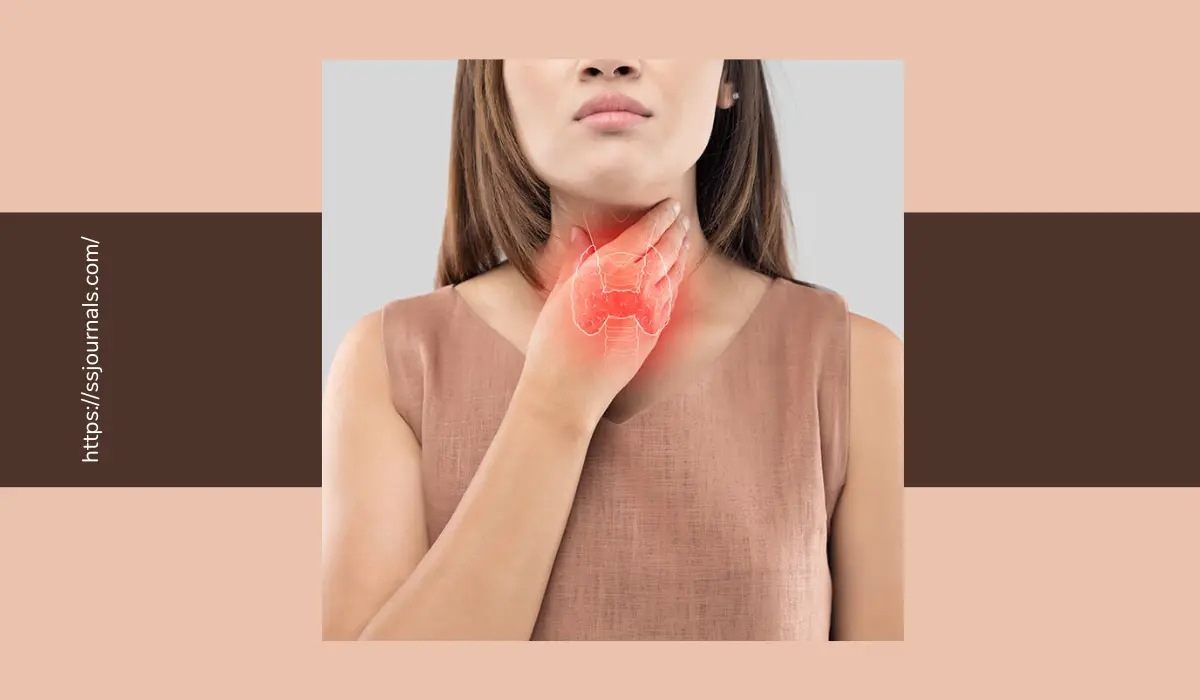Hypothyroidism is a common endocrine disorder that affects quite several women in the world. The little butterfly-shaped organ secretes thyroid hormones that play an important function in the regulation of the rate of metabolism.
If this gland fails to operate at the expected standard, the result is hypothyroidism or underactive thyroid. Hypothyroidism may be caused by various factors though females are predisposed to this condition.
In this article, we will explore common factors contributing to hypothyroidism in females.
9 Common Causes of Hypothyroidism in Women

Autoimmune Thyroiditis (Hashimoto’s Thyroiditis)
Hashimoto’s thyroiditis, an autoimmune disorder in which the immune system mistakenly attacks thyroid tissue, causes most hypothyroidism in women. In this illness, the immune system attacks the thyroid, causing inflammation that reduces hormone production. Chronic inflammation and thyroid function impairment cause hypothyroidism.
Hashimoto’s thyroiditis occurs when the body’s defense mechanism erroneously attacks its thyroid tissues, creating a cascade of hormone production and control problems. Hashimoto’s thyroiditis causes a steady reduction in thyroid function, causing hypothyroidism symptoms.
Understanding Hashimoto’s thyroiditis’ complex immune-thyroid relationship is crucial to understanding female hypothyroidism’s start and progression. With this autoimmune condition, tailored therapies and regular monitoring are needed to regulate inflammation, retain thyroid function, and reduce the health risks of hypothyroidism.
Iodine Deficiency
Iodine is essential for thyroid function because it synthesizes thyroid hormones. In places with little soil and water iodine, women are at risk of hypothyroidism. Iodine deficiency hinders thyroid hormone production, causing underactivity.
Iodine shortage increases female hypothyroidism risk, making it an important public health issue. In places with low ambient iodine levels, iodine intake initiatives are essential for preventing hypothyroidism.
Health treatments can improve thyroid health and reduce hypothyroidism in women by targeting this dietary factor, boosting general well-being, and preventing health issues.
Age-related Factors
As women age, their risk of hypothyroidism increases, peaking at 60. Aging alters thyroid function, reducing hormone production and increasing autoimmune disease risk.
Aging and thyroid function interact in complex physiological ways. Aging causes thyroid hormone production to diminish. This decline in thyroid hormone synthesis can lead to hypothyroidism, where the thyroid fails to generate enough hormones to regulate metabolism.
Women are more susceptible to thyroid autoimmune problems as they age. Hashimoto’s thyroiditis and other autoimmune diseases increase with age. In these illnesses, the immune system incorrectly targets thyroid tissue, causing chronic inflammation and thyroid dysfunction. Older women have more hypothyroidism due to this susceptibility.
Postpartum Thyroiditis
Hormonal changes after pregnancy and childbirth make women susceptible to postpartum thyroiditis. Hyperthyroidism and hypothyroidism alternate in this syndrome. The immune system’s role in postpartum thyroiditis can cause thyroid inflammation and malfunction, complicating the hormonal landscape.
The thyroid gland must adjust hormone levels throughout pregnancy. Due to these changes, postpartum thyroiditis develops in two periods. Hyperthyroidism, characterized by thyroid hormone overproduction, occurs temporarily. This phase leads to hypothyroidism, where the thyroid produces less hormones.
In postpartum thyroiditis, the immune system is important. This syndrome may be caused by the immunological response, which protects the body. Misdirected immune system attacks on thyroid tissue cause inflammation, affecting gland function. Disruptions to the balance between hormonal fluctuations and the immunological response can cause postpartum thyroiditis.
Genetic Predisposition
Female hypothyroidism is often inherited. A family history of thyroid problems, especially autoimmune thyroiditis, increases risk. Understanding genetics helps identify people who need more surveillance and assistance.
Understanding genetics helps identify hypothyroidism risk factors. Healthcare providers can use family medical histories to detect thyroid disorder-related genetic markers. With this knowledge, focused and proactive monitoring can be performed for genetic predisposition, enabling early identification and intervention.
Certain Medications
Certain medicines can affect thyroid function, causing hypothyroidism. Lithium, a common bipolar illness medicine, and amiodarone, a heart arrhythmia treatment, affect thyroid function. Thyroid health must be monitored closely and medication dosages adjusted to handle these treatments.
Bipolar disorder treatment relies on lithium, which affects thyroid function. Hypothyroidism can result from this medicine inhibiting thyroid hormone synthesis and release. Lithium patients must have regular thyroid tests to detect abnormalities. Adjustments to drug dosages may be needed to balance thyroid function.
Vigilant monitoring is crucial, especially for thyroid medication users. These drugs’ effects on thyroid health may be assessed regularly, allowing for prompt interventions. Healthcare professionals and patients must communicate and alter treatment regimens to ensure healthy thyroid function despite medication-related issues.
Regular monitoring and therapy adjustments can help patients avoid medication-induced hypothyroidism.
Radiation Therapy to the Neck or Chest
Radiation therapy for neck or chest cancer may damage the thyroid gland, causing hypothyroidism. Women who had radiation for head and neck malignancies should be especially concerned. Patients who have undergone such treatments must be closely monitored and managed for thyroid health.
To reduce radiation-induced thyroid damage, regular monitoring is necessary. Regular thyroid function tests allow doctors to spot any abnormalities quickly. After radiation therapy, thyroid function can be maintained using proactive thyroid management measures such as hormone supplementation.
Communication between doctors and patients about radiation-induced thyroid issues is crucial. Patients should actively report symptoms and well-being changes during monitoring. Collaboration allows timely treatment strategy revisions, addressing radiation therapy’s effects on thyroid function.
Chronic Stress
Quitting smoking is a practical method to lower thyroid problem risk and promote well-being. Smoking quitting benefits many health areas, including thyroid health. Women should be urged to understand the link between smoking and thyroid function and quit this harmful habit. Smokers can improve their health and reduce their risk of hypothyroidism by quitting.
Polycystic Ovary Syndrome (PCOS)
Women with Polycystic Ovary Syndrome (PCOS), a common hormonal condition, may develop hypothyroidism. PCOS’s complex hormonal abnormalities, including insulin resistance, might affect thyroid function. Comprehensive PCOS management, including lifestyle changes and medication therapies, reduces the risk of hypothyroidism.
Conclusion
It is crucial to understand the various underlying factors leading to the development of hypothyroidism in women for early detection, intervention as well as effective management of the condition.
Regular screenings of the thyroid, especially for those at risk by a family history of thyroid disorder or any autoimmune condition could help with timely detection. That is by taking a root-cause approach and by adopting a holistic approach towards thyroid health, women can manage hypothyroidism on their own and stay overall healthy.

